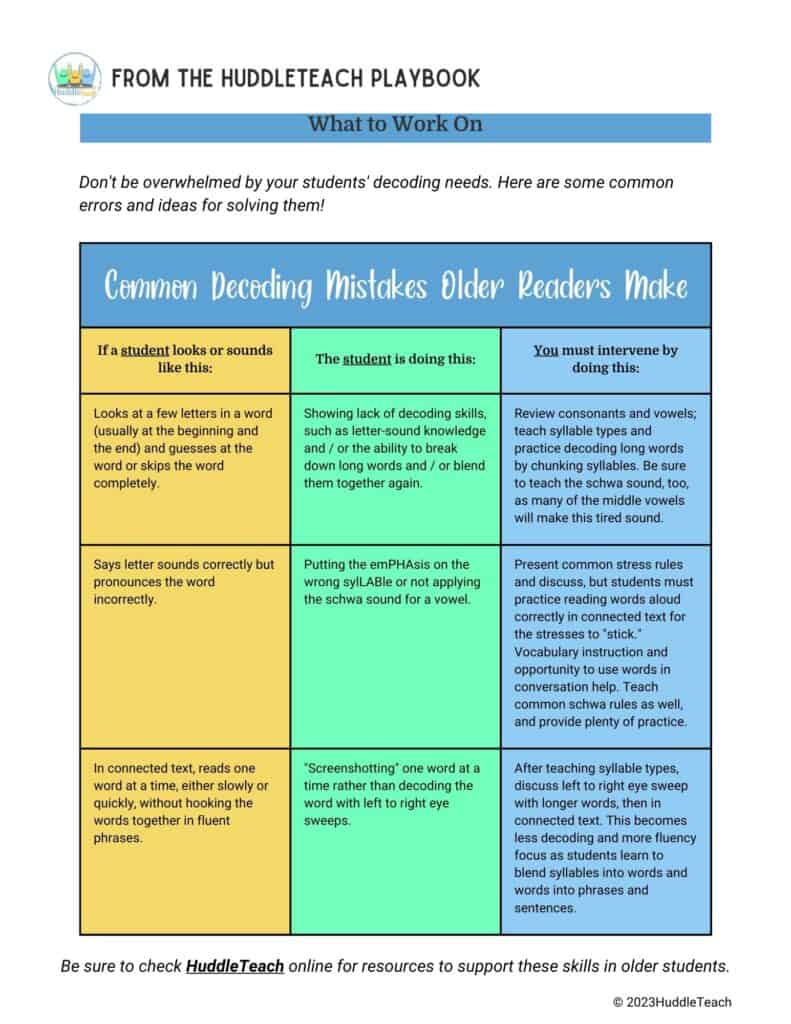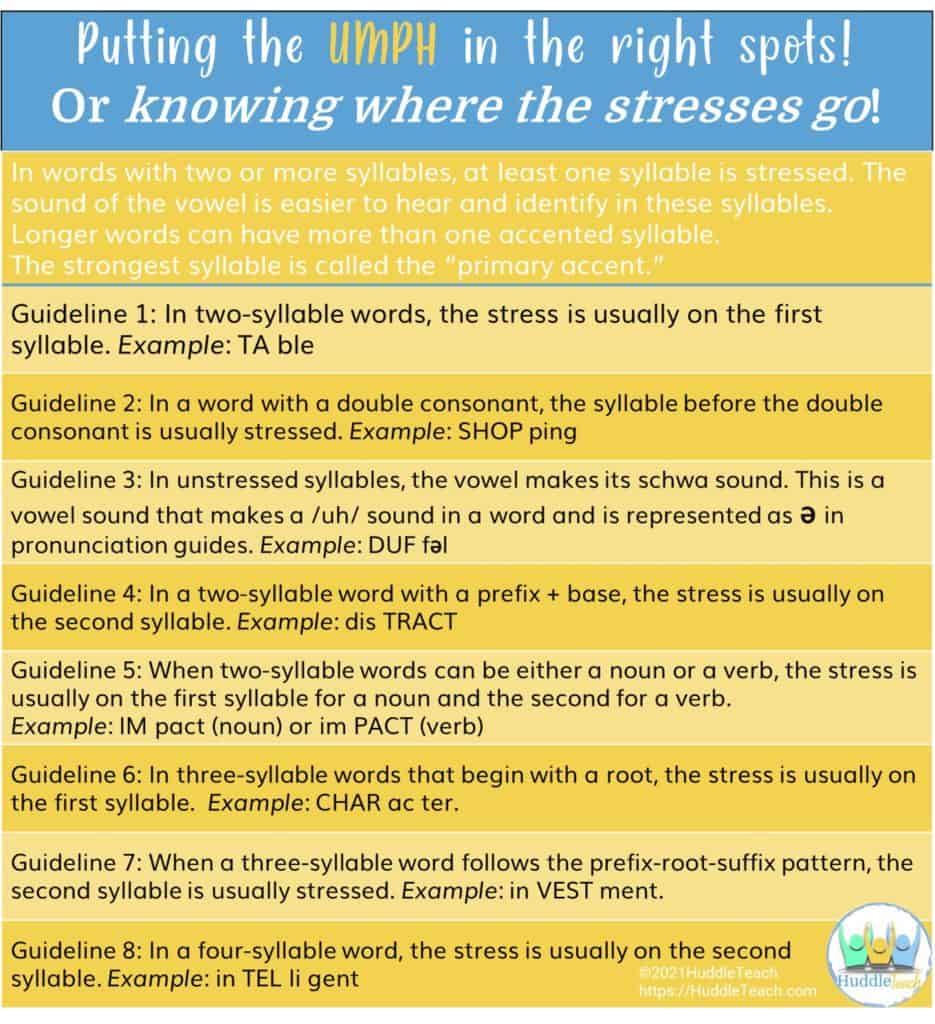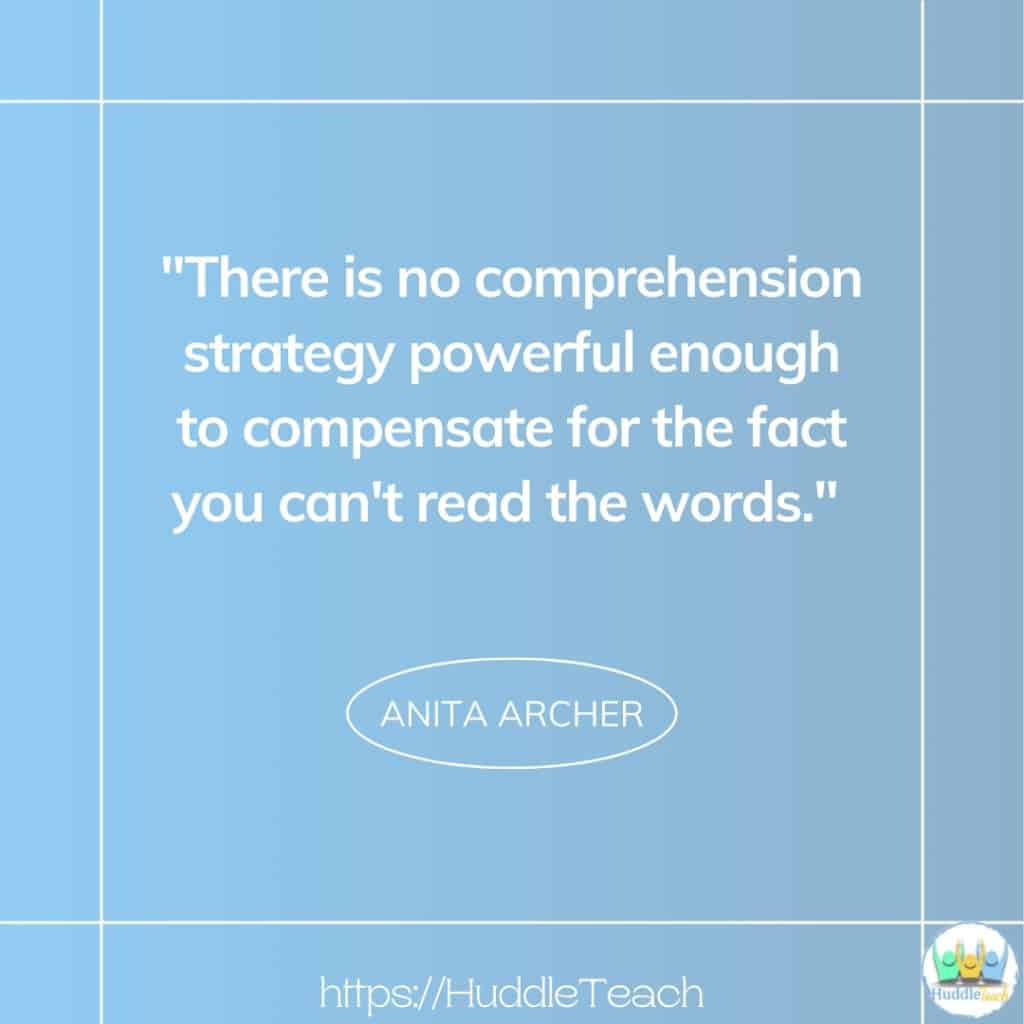What struggling readers are doing wrong and how to help
Many people believe that by the time students enter middle school, they should be adept at applying decoding skills to solve long words. Unfortunately, that is untrue for a large majority of students, especially those who were never taught phonics skills in earlier years. When we assume students can do this, we are committing the dreaded assumicide and shooting our instruction right in the foot!
Instead, watch for these common issues:

Excellent decoding skills lead to greater fluency, which leads to comprehension. As a matter of fact, that second point is the crossover point with fluency – the left to right eye sweep that puts students on the path to rapid text solving in a meaningfully-chunked, expressive way.
Are your students making these decoding skill errors?
Listening to students read is the only way to tell if your students are making these mistakes.
1. Word guessing
The first point – misreading words by guessing – is one of the most common. Students who do this have a large error rate in the area of accuracy. It is vital that these students receive direct, intentional instruction with phonics. These phonics lessons should include a review of consonants, a heavy dose of vowel information, and a lot of syllable work. (Look for materials to help this on my Products page!)
2. Eye sweeping
Catch students with eye sweep issues by listening for a staccato pattern and watching them as they read aloud. Listen for students reading one word at a time, without hooking a word into another in a phrase. This error can be difficult to catch because students may be able to do this quite rapidly. Sometimes, even though students have had instruction in the younger years on solving words, that instruction did not stick. The students benefit when teachers demonstrate the eye movement in a text with statements like: Watch me as I read this text. Watch what my eyes do while I am reading. After reading, discuss the sweeps, pauses, and backslides the eye naturally makes when reading. For especially difficult cases, gradual decoding works by reading the first two words in a phrase, then the first three, then four, and so on until the entire sentence is read. Have students practice, and watch how left to right decoding flows into fluency!
3. Stress errors
For the teacher, this can be the most humorous error as it harkens back to comedy movies and television shows in which words change meaning with the stress of a word on the wrong syllable. Often, students have had to have heard the words to put the emphasis on the correct syllable. This is an advanced decoding skill that cannot be taught simply as memorization of generalizations, but rather through ample practice speaking the words. Here are some guidelines to keep in mind as you help students work out the stresses in longer words.

Practice decoding skills for growth
Even after students have become more competent with decoding skills, they will need additional practice solving multisyllabic words.
Be sure to read our other decoding entries, 3 Must-Read Decoding Research Articles , Phonological Awareness for Older Students, and Working with Middle School Struggling Readers – Decoding Words and visit this store page and this store page for materials for middle school decoding instruction.


